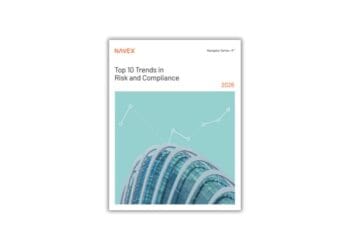An estimated 20% of the U.S. workforce are family caregivers outside of work, meaning they provide assistance for a parent or other adult family member. As the Baby Boomer generation continues to age (and with Generation X hot on their heels), the ranks of family caregivers in the American workplace will only continue to rise. Mental health practitioner Asha Tarry talks about how employers can support these workers and ensure their talents are retained.
While pundits tend to blame the Great Resignation and continued worker engagement crisis on a general sense of burnout and cultural malaise, too few have stopped to wonder if there’s something more behind the millions of people growing disgruntled at work. Could there be another reason for the overwhelm, burnout, leaves of absence, tardiness and growing requests for time off or flexible work schedules? As a healthcare practitioner, small-business owner and three-time caregiver, the answer is obvious to me: Millions of American workers are burned out and overwhelmed because they simply can’t manage competing responsibilities.
As much as 22% of the U.S. workforce is composed of family caregivers, according to a study by the Rosalind Carter Center, and on average these people provide 20 hours of caregiving services each week — on top of their full-time jobs. Not surprisingly, nearly one-third of these employees will eventually leave work due to caregiving responsibilities.
Supporting employee caregivers goes far beyond making sure your company is providing legally mandated FMLA accommodations — though that’s important, too. Recognizing the challenges family caregivers face in the workplace and ensuring they are able to focus on this important task is crucial both for today’s workforce and as the ranks of older generations continue to grow.
The rise of the caregiving workforce
More and more employees find themselves balancing full-time work and caregiving responsibilities. One driving force behind the increasing number of employee caregivers is the aging population. Their parents are now living longer, often requiring support and care later in life.
The changing dynamics of the modern family also contribute to the growing number of caregivers in the workforce. In previous generations, caregiving duties typically fell to stay-at-home mothers and wives. Today, millions of full-time employees on every rung of the corporate ladder find themselves navigating this role, though it’s important to note that the majority of working family caregivers are women.
Balancing work obligations while providing care for a loved one is no small feat. Caregiving employees routinely experience emotional and physical exhaustion, increased stress and added financial burdens. Juggling appointments and emergencies takes a toll on their overall well-being, affecting job performance and satisfaction.
Employee caregivers take on a wide range of tasks, from managing medical appointments to providing emotional support and assistance with day-to-day activities. By necessity, many of these responsibilities occur during work hours. Though most caregivers spend around 18 hours per week offering care to a loved one, about one-quarter spend 40-plus hours each week on caregiving tasks. Recognize and acknowledge the physical, emotional and mental toll caregiving takes on your employees — and be ready to lend a helping hand.
Management as We Know It Is Broken. How Can Leaders Fix It?
Shifting to inquiry-led approach means proper delegation
Read moreDetailsEmpower caregivers with flexibility
As an employer, you can play a vital role in supporting your caregiving workforce by offering flexible work arrangements. Provide employees with resources to fulfill their caregiving responsibilities without compromising their job performance.
Allowing your employees to work from home or other locations outside the traditional office setting provides caregivers with much-needed flexibility, and remote work enables them to attend medical appointments, offer hands-on care, address emergencies and continue fulfilling their responsibilities.
Flexible work hours involve allowing your employees to adjust their work schedules to accommodate caregiving responsibilities. This could include altering start and end times, adopting compressed workweeks or even job-sharing arrangements. This flexibility enables caregivers to handle their unique responsibilities without compromising work commitments.
Recognizing that caregiving roles can be all-consuming, you can make part-time or reduced hours an option for employees who need to dedicate more time to caregiving duties. This arrangement allows caregivers to strike a better balance between work and personal responsibilities.
For caregivers who require an extended period of time away from work, you can offer unpaid leave or sabbaticals; in fact, depending on your organization, you may be required to do so. For employers with 50 or more employees within a 75-mile radius, workers are entitled to take up to 12 weeks of unpaid leave from work under the Family and Medical Leave Act (FMLA). Additionally, employees who experience a mental health crisis or a chronic condition like depression or persistent anxiety, for example, may qualify for short-term or long-term disability, too.
Foster a supportive workplace culture
Create a supportive workplace culture that recognizes and appreciates the challenges caregiving employees face. Start with training programs that enhance their understanding and empathy. By promoting awareness, you foster a more inclusive workplace environment for everyone.
Encourage open communication to inspire compassion, camaraderie and collaboration within the workplace. You can establish this culture by encouraging employees to discuss their caregiving responsibilities openly with supervisors and colleagues.
Organize support groups or networks specifically for caregivers within your organization that allow employee caregivers to connect with others facing similar challenges, share experiences and provide mutual support.
Because caregiving can be emotionally taxing, caregiver employees greatly benefit from mental health resources, which is where you can provide counseling services and implement employee assistance programs (EAPs). EAPs offer a range of services designed to assist employees in managing personal and work-related challenges, including counseling services, referral resources and educational materials.
Employee caregivers often neglect their own self-care needs while focusing on loved ones, but by offering access to EAPs, you provide caregivers with the tools and resources they need to navigate the complexities of caregiving. Additionally, encourage them to practice consistent self-care by taking breaks throughout the day, practicing relaxation techniques or incorporating physical activity into their routine.
How employers benefit when they support caregivers
As a healthcare provider offering psychotherapy primarily to Gen-X’ers and Millennials, I can assure employers that people are not leaving their jobs because they don’t solely align with the workplace culture. Most are on the verge of a mental health meltdown, with 40% to 70% of caregivers exhibiting symptoms of clinical depression, and another 40% finding their role extremely stressful. When you see your employees calling out of work, coming in late, leaving early or taking leaves of absence, think twice before chalking their actions up to laziness. They may be some of your hardest-working employees, a generation of professionals caring for young children and elderly parents at home.
Spotlighting the issue internally helps your employees feel less isolated. When you communicate that employees are working a hybrid schedule because the company supports and wants to retain their talent, you make employees feel seen and valued. When you bolster benefits packages to allow employees to tap into services before they burn out, you boost retention and company loyalty and build a culture of support.
Research shows that creating flexible work options and a supportive workplace culture for caregivers not only helps people with their caregiving responsibilities but also yields significant benefits for employers. These benefits include increased employee morale, higher retention rates, reduced absenteeism and improved productivity. By supporting caregivers, you demonstrate your commitment to the well-being of your employees, foster a positive company image and attract top talent.




 Asha Tarry is an accomplished mental health practitioner, life coach, writer and a three-time caregiver to adults with dementia. Asha’s ability to quickly diagnose social, behavioral and environmental stress in fast-paced, highly charged situations and counter it with direct action and strategy to help adults transform their relationships with people, work and emotional well-being are her specialty.
Asha Tarry is an accomplished mental health practitioner, life coach, writer and a three-time caregiver to adults with dementia. Asha’s ability to quickly diagnose social, behavioral and environmental stress in fast-paced, highly charged situations and counter it with direct action and strategy to help adults transform their relationships with people, work and emotional well-being are her specialty. 






